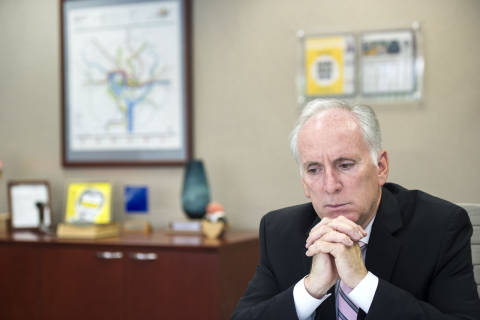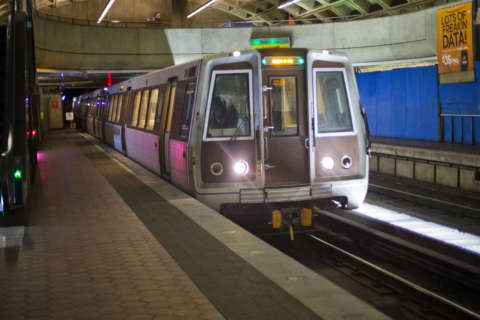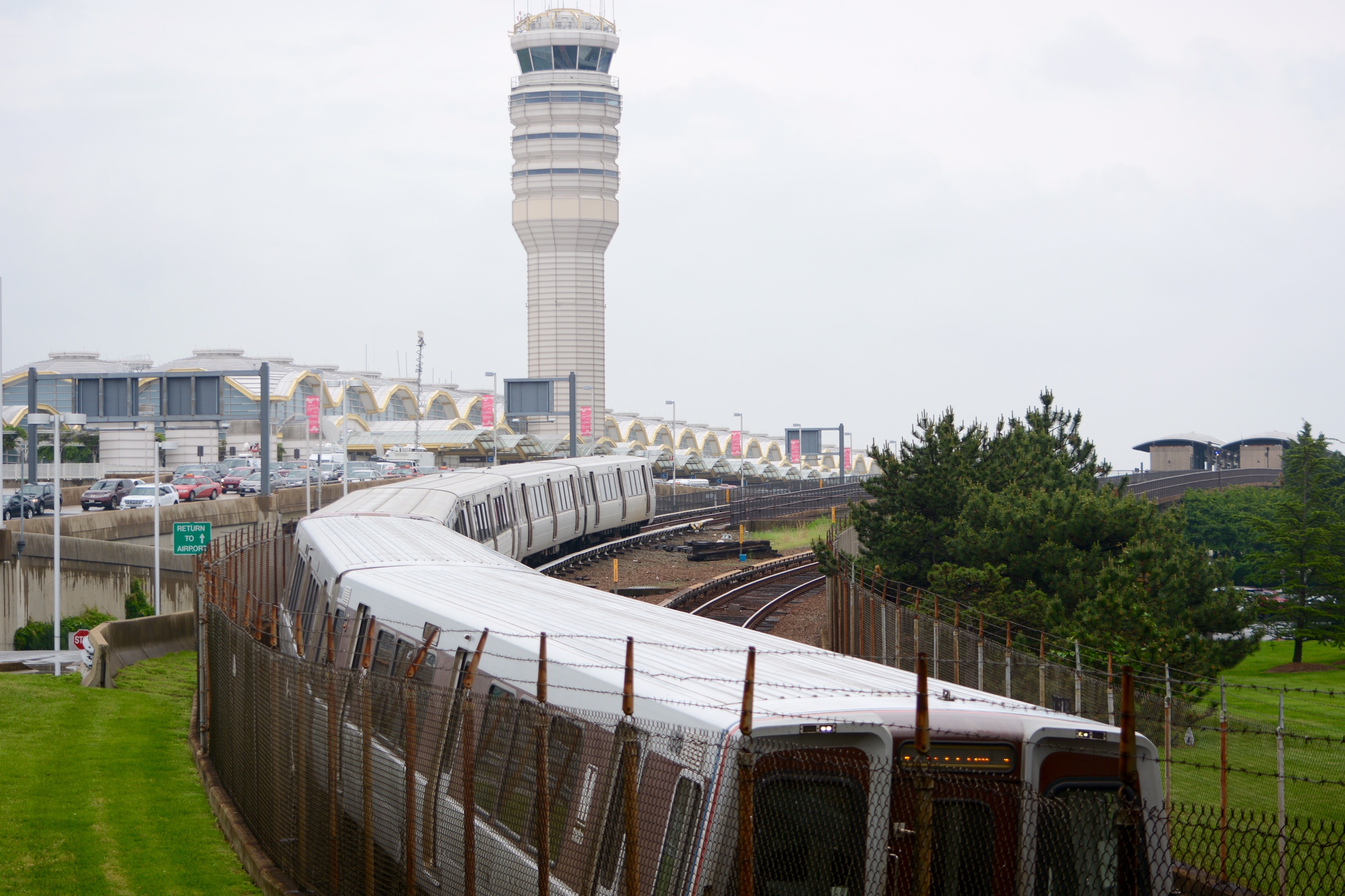WASHINGTON — Metro may not raise fares or significantly cut service again next year.
The outline of General Manager Paul Wiedefeld’s initial $3.1 billion dollar budget proposal released Monday morning asks Maryland, D.C. and local governments in Virginia to pay $1.796 billion in the year starting in July. That’s $165 million more than the current fiscal year’s budget.
The proposal suggests keeping fares flat after increases that took effect in June and would not change the new, reduced schedules that also kicked in Jun. 25.
The plan does not include several large potential or coming costs, including:
- Staffing up for the Silver Line extension to Dulles due to open in 2020
- Bus route improvements set to be approved soon by the Metro Board that would require $2.7 million in additional contributions mainly from the District
- Any raises that could be given to thousands of workers as part of ongoing contract arbitration
- Funding that has been put off for retirement benefits, or
- Increased funding requested by Metro’s Office of the Inspector General.
It also does not include a rainy-day fund Wiedefeld had been pushing for.
With no regional agreement on how or whether to implement a new tax to fund major Metro capital repairs, the budget proposal warned that state and local governments should expect to be asked for significantly more local tax dollars each year going forward unless Metro “resets” its bus network, cuts paratransit costs, contracts out some services, addresses pension issues and changes arbitration standards.
The $1.837 billion operating budget and $1.28 billion capital budget plans do not include the additional dramatic cuts Wiedefeld had warned could come this year without a new dedicated tax, but that assumes local governments agree to pay the proposed increase. A number of local government leaders have said they struggle to meet even current funding levels.
Wiedefeld’s proposal does keep the operating budget subsidy increase request to 3 percent, but he is asking for a 21 percent increase in the local capital subsidy.
If the federal government cuts its contributions to the system and there is no new dedicated Metro tax, the proposal says Maryland, D.C. and local governments in Virginia would need to put $6.3 billion total over the next six years toward capital needs — $4 billion more than the governments spent between 2011 and 2016 when Metro often returned capital money unused.
Without new funding, Wiedefeld projects a total jurisdictional contribution of $1.95 billion the following year, $2.28 billion the year after that, and around $2.5 billion in fiscal year 2022 if the federal government does not extend special funding for Metro that is due to expire in a few years.
Adding to the issues, overall Metro ridership remains down. In July, August and September, Metro brought in less revenue than projected as bus ridership continues to fall and rail ridership struggles to rebound. The agency also brought in 11 percent less non-fare revenue than budgeted.
“Ridership on both bus and rail continues to face challenges stemming from perceived service, growth in alternative transportation options, low gasoline prices, and telecommuting,” a presentation for the Metro Board said.
Metro acknowledges that the disruptions of round-the-clock track work and riders continuing concerns over the fare hikes and service cuts implemented in June are limiting ridership too. Next year’s budget projects flat rail and bus ridership compared to the current fiscal year’s projections.
Metro projections still show the agency within its operating budget for the current year, given lower than budgeted spending on wages and services. That is pending the labor contract, any ridership changes, major snowstorms and any unforeseen track maintenance or safety needs which could drive up costs.
Wiedefeld promises in his budget proposal to cut $38 million in spending compared to the current year by more limits on overtime, other cuts, and making more money from parking lots and advertising.
For the year that ended in June, Metro had a $15.3 million operating deficit that it is covering with a small amount of leftover cash from previous years.
For the separate capital budget this year, Metro appears to be mostly on track for major projects.
Over the next few years, Metro expects to have all 748 new 7000 Series railcars on hand, a new bus garage completed at Andrews Federal Center, more cellphone service available in tunnels, and more track, power and lighting upgrades.
As part of the plan, Metro will consider its options for more new railcars, bus garage replacements, tunnel water seals and ventilation fan improvements. Metro will also consider changes at busy rail stations downtown to deal with crowding. Metro does not expect to be running all eight-car trains within the next six years.
The actual detailed budget proposal document is expected in December. Public comment and Metro Board adjustments would happen between December and February, with the budget approved by the board in March.







